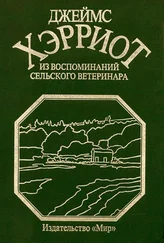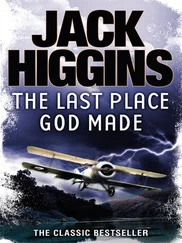Джеймс Хэрриот - The Lord God Made Them All
Здесь есть возможность читать онлайн «Джеймс Хэрриот - The Lord God Made Them All» весь текст электронной книги совершенно бесплатно (целиком полную версию без сокращений). В некоторых случаях можно слушать аудио, скачать через торрент в формате fb2 и присутствует краткое содержание. Год выпуска: 2011, ISBN: 2011, Издательство: Open Road Integrated Media, Жанр: Домашние животные, на английском языке. Описание произведения, (предисловие) а так же отзывы посетителей доступны на портале библиотеки ЛибКат.
- Название:The Lord God Made Them All
- Автор:
- Издательство:Open Road Integrated Media
- Жанр:
- Год:2011
- ISBN:9781453227930
- Рейтинг книги:3 / 5. Голосов: 1
-
Избранное:Добавить в избранное
- Отзывы:
-
Ваша оценка:
- 60
- 1
- 2
- 3
- 4
- 5
The Lord God Made Them All: краткое содержание, описание и аннотация
Предлагаем к чтению аннотацию, описание, краткое содержание или предисловие (зависит от того, что написал сам автор книги «The Lord God Made Them All»). Если вы не нашли необходимую информацию о книге — напишите в комментариях, мы постараемся отыскать её.
The Lord God Made Them All — читать онлайн бесплатно полную книгу (весь текст) целиком
Ниже представлен текст книги, разбитый по страницам. Система сохранения места последней прочитанной страницы, позволяет с удобством читать онлайн бесплатно книгу «The Lord God Made Them All», без необходимости каждый раз заново искать на чём Вы остановились. Поставьте закладку, и сможете в любой момент перейти на страницу, на которой закончили чтение.
Интервал:
Закладка:
He had a definite point. East-West relations were at one of their lowest ebbs at that time and I grew used to my clients making it clear that Russia was one place they would avoid. In fact, when I told Colonel Smallwood about it when I was tuberculin-testing his cattle a few days before I left, he raised his eyebrows and gave me a cold stare.
“Nice to have known you,” he murmured.
But I have seafarers’ blood in my veins going back several generations, and I felt only happy expectation.
October 28, 1961
The first day has come and gone. When I walked onto the quayside at Hull, I saw our ship right in front of me. She is Danish, the Iris Clausen of 300 tons, and my first sensation is of mild shock that she is so small. I had cherished a mental picture of a substantial vessel for such a voyage.
When I first saw her at the dockside, only the bows and a portion of deck were visible. This part looked tiny, and a high superstructure obscured what I surmised must be the greater part of the ship. I walked along past this superstructure and experienced a moment of disquiet. I found that the ship ends right there. There just isn’t any more.
To my untutored eyes, the Iris Clausen looked like a toy oil tanker, and it was difficult to imagine her crossing an ocean or weathering a storm.
The cargo of sheep had just been loaded and the decks were littered with straw. When I went into the little mess room I saw the captain, who was called Rasmussen, sitting at the head of the table around which were grouped representatives of the export company and two Russian veterinary surgeons who had been inspecting the sheep.
The table itself was heavily laden with a wonderful variety of Danish open sandwiches, beer, whisky, schnapps and other drinks, and with mountains of forms which everybody was furiously signing.
One of the Russians, a bespectacled little man, apparently realised who I was, because he came up and with a smile said, “Veterinary surgeon,” and shook my hand warmly. His colleague, tall and gaunt, was painstakingly going through the forms and saying nothing.
The chief man from the export people informed me that not only am I to be the medical attendant to the 383 pedigree Romney Marsh and Lincoln sheep we are carrying, but I have also to deal with the Russians at our port of destination, Klaipeda. I have to bring back five acceptance forms signed by the Russians and myself, otherwise the company will not get paid.
“How much are the sheep worth?” I asked.
The export man’s mouth twitched up at one corner. “Twenty thousand pounds.”
My stomach lurched. It was a fortune. This was a responsibility I hadn’t foreseen.
When the crowd had cleared, Captain Rasmussen and I were left alone in the room. He introduced himself charmingly and I was immediately attracted by his gentle manner. He is smallish, silver-haired and speaks excellent English.
He waved me to the chair by his side. “Sit down, Mr. Herriot, and let us talk.”
We spoke about our families, then about the job in hand.
“This is a motor ship,” said the captain. “Built for the sole purpose of transporting animals. There are two decks below with pens for the sheep. Perhaps you would like to see your charges?”
As we left the mess room I noticed that the captain was limping slightly. He smiled as he saw me looking down at his feet.
“Yes, I broke my ankle a few months ago. Fell down the steps from the bridge to my cabin during a storm. Silly of me.”
I wondered if I would be doing any falling about over the next week or so. We walked around the sheep. Beautiful animals, all of them, and they were very comfortable, well bedded in straw and with lots of sweet hay to eat. The ventilation was just right and the atmosphere pleasantly warm.
When I left the captain, I was agreeably surprised at the first sight of my cabin. No doubt those on passenger liners are more sumptuous, but there is a bunk with spotless sheets and pillows, a desk, armchair and sofa, a wash basin, fitted wardrobe, two cupboards and a lot of drawers. The whole place is done out in shining light oak. I am very impressed with my temporary home.
I opened my suitcase. Only a tiny part of it was taken up by my personal effects; the rest was filled with the things I thought I might need. My black P.V.C. working coat, bottles of calcium, antibiotics and steroids, scalpel, scissors, suture materials, bandages, cotton wool and syringes.
I looked down thoughtfully at the limited array. Would I find it too meagre or would I not need any of it? The following days would tell me.
We took on the pilot at 8 P.M., and at 9 P.M. I heard some activity outside my window. I looked out and saw two of the crew winching up the anchor.
I went up on deck to watch our departure. The night was very dark, and the dockside was deserted. A cat scurried through the light thrown by a single street lamp but nothing else stirred. Then our siren gave a loud blast and I could see we were moving very slowly away from the quay. We glided through the narrow outlet of the dock, then began to head quite swiftly towards the mouth of the Humber, two miles away.
As I stood on the deck I could see several other ships sailing out on the evening tide, some quite close, cleaving through the water abreast of us only a few hundred yards away, a graceful and thrilling sight.
Away behind, the lights of Hull receded rapidly, and I was looking at their faint glitter beyond the stretch of dark water when I felt a touch on my arm.
It was a young sailor, and he grinned cheerfully as I turned round. “Doctor,” he said. “You show me how to feed the sheeps?”
I must have looked puzzled because his grin widened as he explained. “Many times I sail with cattles and pigs but never with sheeps.”
I understood and motioned him to lead on. Like all the crew, he was a Dane, big, fair-haired, typically Nordic, and I followed his broad back down to the animals’ pens. He listened intently as I gave him the information about feeding and watering, especially about how much concentrates to give. I was particularly pleased to see that as well as the fine-quality hay, there was an abundance of a top-class brand of sheep nuts in big paper sacks.
While he got on with his work, I looked around at the animals which would be under my care. Most of them were Romney Marsh, and as the engines throbbed and the deck vibrated under my feet I marvelled again at their attractiveness. They had great woolly heads like teddy bears, and their eyes, soft and incurious, looked back at me as they lay in the straw or nibbled at their food.
Before coming down here to my cabin, I had an irresistible urge to return to the upper deck and look around. I have sea captains among my uncles and a great grandfather who was a ship’s pilot and the sea has always had a pull for me. In the darkness I walked around the deck. This wasn’t easy because there is only a narrow strip, twenty-five yards long, on either side.
The moon had come out, casting a cold white brilliance on the water of the river estuary. Far on the starboard side, a long row of lights glimmers—probably Grimsby. On the port side, about three hundred yards away, a ship sped silently through the night, keeping pace exactly with us. I watched her for a long time, but her position never varied and she was still there when I came down.
My cabin is now a place of shakes and shudders, of indefinable bumps, rattles and groans. As I write, I know for sure that we are now well out to sea because I am very aware of the rolling of the ship.
I have had an experimental lie in my bunk, and this is where the rolling is most noticeable. From side to side it goes, side to side, over and over again. At one time there was some talk of Helen coming with me on this trip, and I smile to myself at the thought. This wouldn’t suit her at all—she soon becomes queasy sitting in the back of a car. But to me the gentle motion is like the rocking of a cradle. I know I shall sleep well.
Читать дальшеИнтервал:
Закладка:
Похожие книги на «The Lord God Made Them All»
Представляем Вашему вниманию похожие книги на «The Lord God Made Them All» списком для выбора. Мы отобрали схожую по названию и смыслу литературу в надежде предоставить читателям больше вариантов отыскать новые, интересные, ещё непрочитанные произведения.
Обсуждение, отзывы о книге «The Lord God Made Them All» и просто собственные мнения читателей. Оставьте ваши комментарии, напишите, что Вы думаете о произведении, его смысле или главных героях. Укажите что конкретно понравилось, а что нет, и почему Вы так считаете.












